Woodwind instruments are typically this shape.
One straight line.
Percussion instruments can be pitched or _______.
Non-pitched.
This is the largest brass instrument, and plays the lowest.
The tuba.
This instrument has the most strings.
The harp.
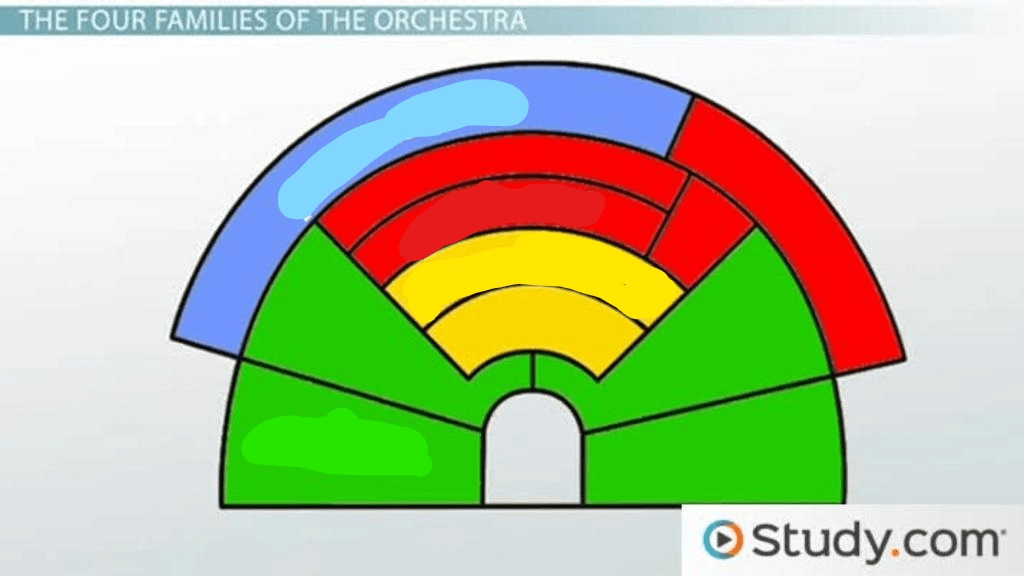 The instrument family that belongs in the red section.
The instrument family that belongs in the red section.
The brass family.
The saxophone and the __________ are single reed instruments.
The clarinet.
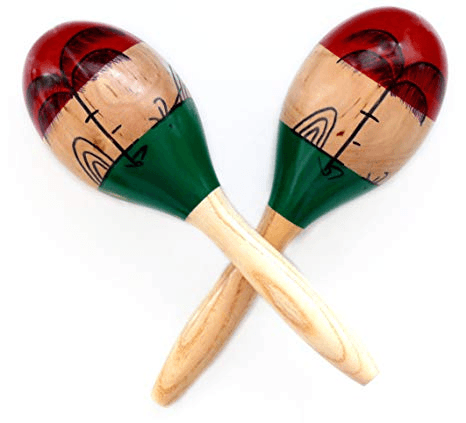
The sub-family that this instrument belongs to.
Shakers.
True or False: Brass instruments only blow air out of the horn.
True.
String instruments sound when you ______ or strum them.
Pluck.
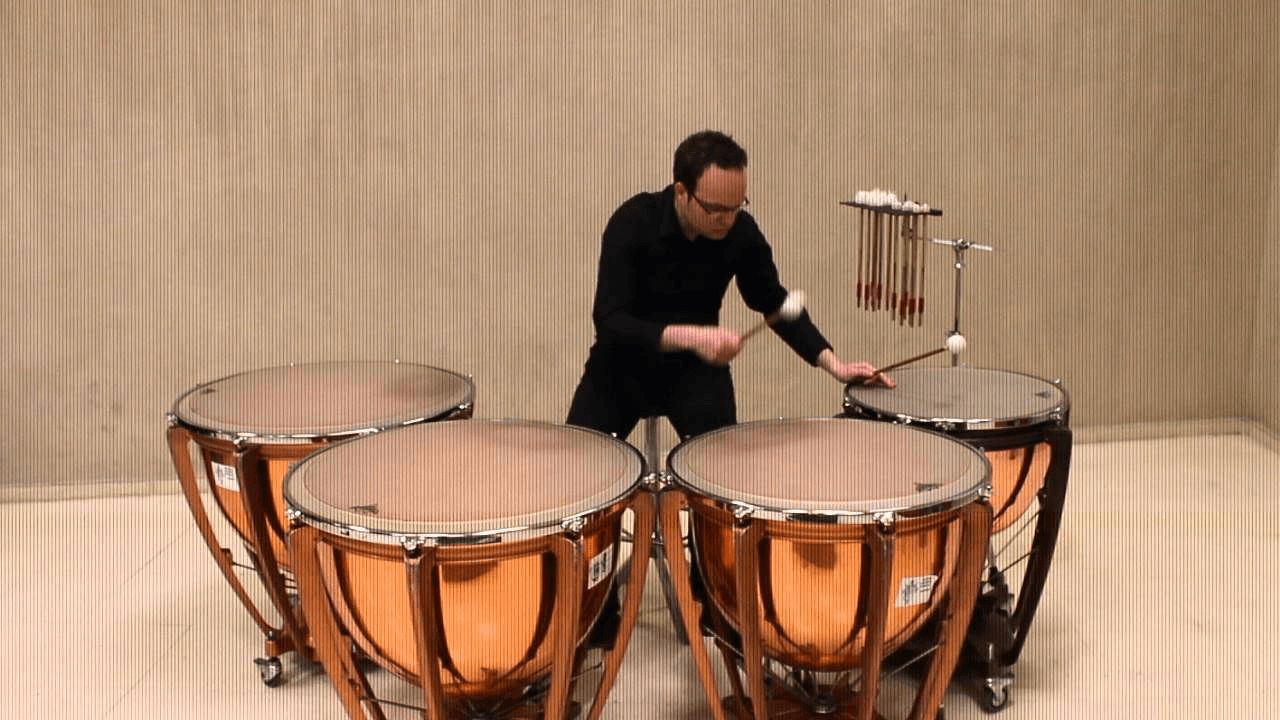
The name for these kind of drums.
Timpani.
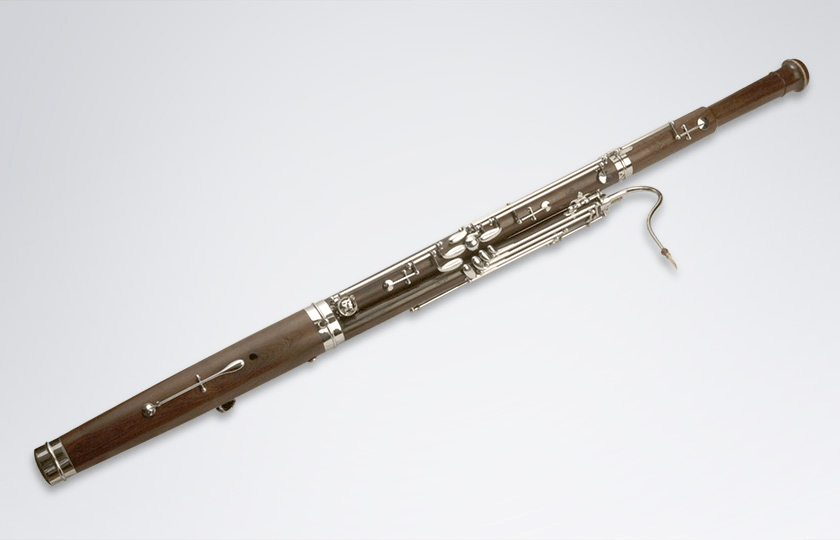 This instrument.
This instrument.
Bassoon.
Percussion instruments make sound by shaking, striking, or _______.
Scraping.
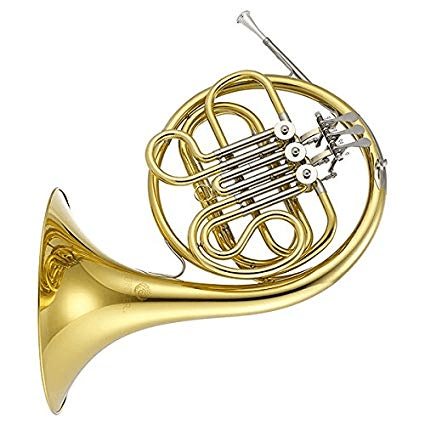
The name of this instrument.
The French Horn.
The string instrument you hear playing.
The banjo.
 What family does this instrument belong to?
What family does this instrument belong to?
True or False: All woodwind instruments are made out of wood.
False.
Why drums are considered membrane percussion instruments.
Drum heads used to be made of animal skin stretched tight over the frame.
This instrument slides its tube to change pitch.
The trombone.
The largest string instrument. Musicians must stand to play it.
The amount of keys on a piano.
88 keys.
How we can tell the flute is a woodwind instrument.
It is one straight piece of metal, it has keys and holes that air goes through to change the pitch.
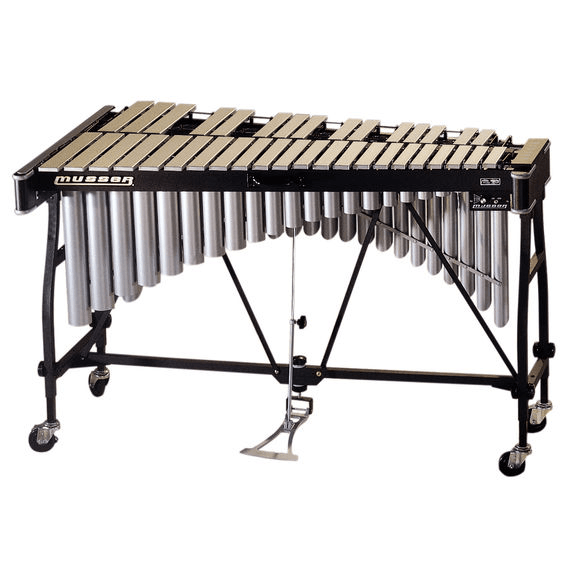 This is an example of a _________ percussion instrument.
This is an example of a _________ percussion instrument.
Pitched.
The brass instrument you hear in this video.
The trumpet.
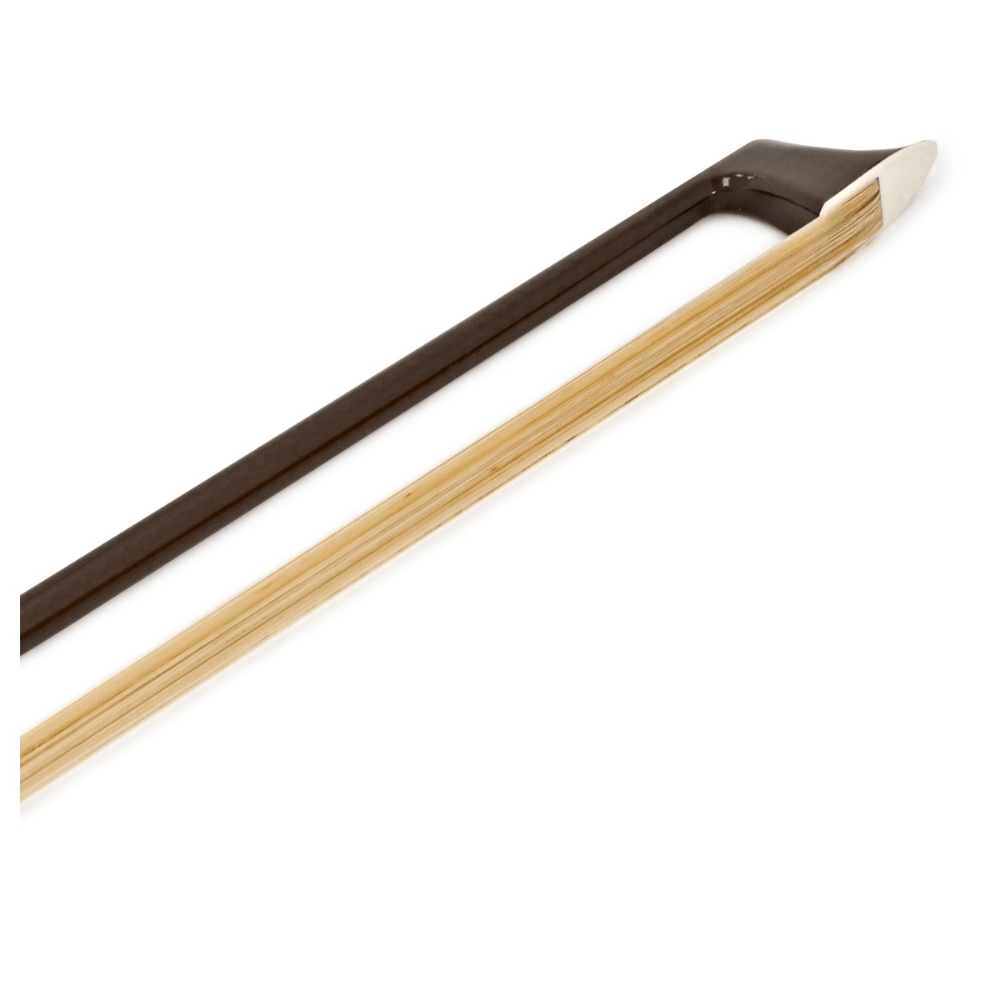
Most bows are usually made of this.
Horse hair.
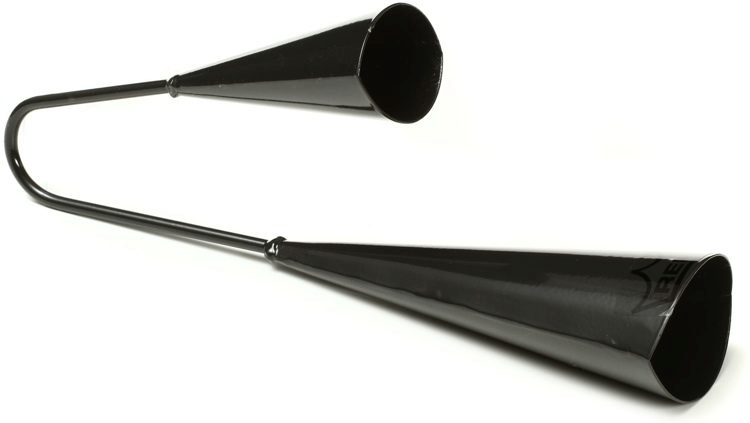 The name for this non-pitched percussion instrument.
The name for this non-pitched percussion instrument.
Agogo bells